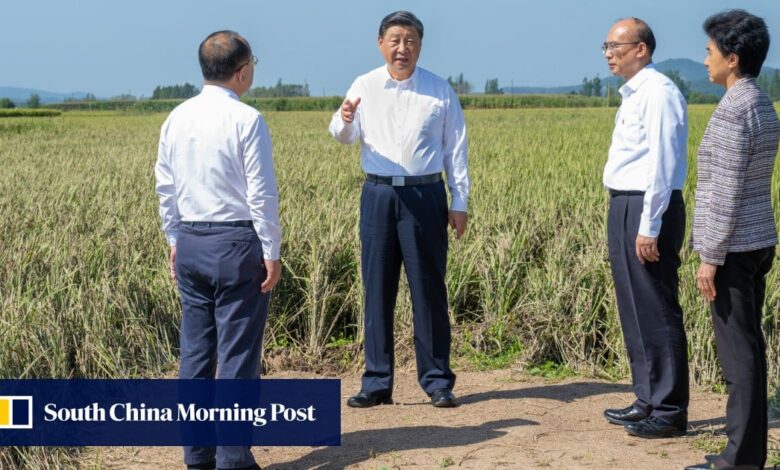China’s Xi Jinping says Communist Party control too weak in rural areas, new book reveals

Beijing tightens hold on rural China, training thousands of village chiefs
Beijing tightens hold on rural China, training thousands of village chiefs
Published by the Central Party Literature Press, the book is a collection of Xi’s remarks since 2012 on how the party has governed at the community and village level.
At the CPPCC event in March last year, Xi delivered his critique of the countryside and demanded that party organisations there be strengthened, according to the book.
Xi’s speech to the advisory body came after a decade of efforts by the leader to consolidate the party’s power across the country and in various policy sectors.
Analysts said Xi’s remarks reflected his concern about inadequate party control in rural areas.
“The statement highlights the party’s concerns about its limited influence over the countryside as it embarks on its ambitious rural revitalisation agenda,” said Ben Hillman, an associate professor at Australian National University’s School of Public Policy and director of the Australian Centre on China in the World.
“Rural areas are crucial to the party’s development plans as it seeks to build on the targeted poverty alleviation campaign to boost food security and promote consumption.”
China says no large-scale return to poverty, despite impact of coronavirus
China says no large-scale return to poverty, despite impact of coronavirus
Nearly 500 million people live in more than 2 million villages in rural China, according to data from the National Bureau of Statistics.
Rural China was the power base of the Communist Party before it won the civil war in 1949, and Xi, like his predecessors, has devoted considerable attention to rural development.
Xi launched a “targeted poverty alleviation” campaign in November 2013, vowing to improve living standards in rural areas. He then declared victory in the fight against “absolute poverty” in early 2021.
At the national party congress in 2017, Xi said agriculture and rural issues were the party’s “fundamental issues” and launched a new “rural revitalisation” campaign.
Xinhua reported on the speech last March, saying Xi demanded that rural revitalisation must not only focus on economic development, but also strengthen the construction of rural grass-roots party organisations, attend to the ideological and moral education of villagers, emphasise the rule of law, improve the system of rural governance and deepen the self-governance practices of villagers.
He also called for a “sustained crackdown on gang crimes in the countryside”.
But official reports at the time did not contain Xi’s fierce criticism of the rural situation.
“These demands must be met regularly, like daily cleaning. Otherwise, dust will accumulate,” Xi said, according to another newly disclosed line from the speech.
Zhou Wang, an associate professor at Nankai University’s Zhou Enlai School of Government, said the party’s control over the countryside had been relatively weak for decades starting in the 1980s, so another goal of Xi’s poverty eradication campaign was to “fill the vacuum of power at the grass-roots level”.
But Zhou added that “a poverty alleviation campaign alone is not enough for problems that have accumulated over decades”.
In recent years, rural areas have been the focus of crackdowns against gang activity.
“Xi’s statements reflect concerns about the continued prevalence of traditional forms of social organisation in the countryside,” Hillman said.
“Under Xi, the party wants to stamp out any form of organisation that channels loyalty away from the party.”





